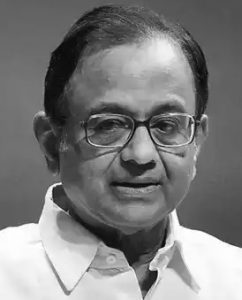
P. Chidambaram
Veteran Leader, Congress Party
While addressing a rally at Khargone, Madhya Pradesh, Mr Narendra Modi said, “From Kashmir to Kanyakumari, from Kutch to Kamrup, the whole nation is saying ‘Ab ki baar, 300 paar, phir ek baar, Modi Sarkar’.” He got his psephology right, but geography wrong. The final tally proved that his electoral marksmanship deserved a perfect 10.
So, congratulations are in order to Mr Modi, the BJP, the millions of workers of the party and the allies. As he begins his second term of office, I wish the Prime Minister success in steering the government and in the service of the people. The exit polls were published two days later on May 19 and at least two of them were spot on: 300 for the BJP, 350 for the allies and about 50 for the Congress. These two polls restored some faith in statistical sampling and election forecasts!
The rival visions
Another journey begins today. The journey will never end. At five-year intervals, there is a rest stop, and the journey will resume. There are — and will be — differences among the party-contenders for the right to govern India. These differences are the hallmark of a multi-party democracy, especially a vibrant democracy in a plural and diverse society. A party may refuse to accept the diversity and yet win a national election, but that does not mean the diversity is not real.
The BJP has a vision of India: one nation, one history, one culture, one heritage, one civil code, one national language, and many other aspects of ‘oneness’. The Congress has a different vision: one country, many interpretations of history, many sub-histories, many cultures, plural civil codes, many languages, and many other aspects of diversity, in which one seeks unity. The regional parties have their own vision: while the vision may differ from state to state, there is a common thread running through their political statements: that the history, language and culture of the people of the state are entitled to the highest respect and, especially, the language of the state has to be nurtured and given primacy.
Salience of language
Language, in particular, is an emotive issue. The culture, the literature, the arts, and every other aspect of the life of the people revolves around the language. This is true not only of the Tamil people but also of those who speak Telugu, Malayalam, Kannada, Odia, Bengali and, I suppose, every other ancient language. The salience of language in politics, especially political communication, cannot be disregarded.
I know the Tamil people reasonably well. Language is at the centre of their civilisation and culture. Tamil is the identity of the Tamil-speaking person, the Tamizhan. The three great composers in Carnatic music were born in Tamil Nadu but wrote their verses in Sanskrit and Telugu. The Tamil Isai (Music) movement was born in order to assert the primacy and pride of Tamil. Archanas in temples were performed in Sanskrit and are still the language of choice of most temple archakas and worshippers; the Tamil archana was mandated by government as an alternative and the policy was accepted by everyone. Hinduism, as we know it today, was Shaivism and Vaishnavism and that is how they are recorded in Tamil history and religious literature. In fact, Tamil classics were vehicles of religion as much as they were examples of fine literature. Besides, Christian and Muslim scholars and authors contributed in great measure to enriching the Tamil language.
What I have said about the Tamils and Tamil language is equally true of the people and the languages of Kerala, Karnataka, Telangana, Andhra Pradesh and West Bengal. Just ask your friends.
Let me come back to the competing visions of different political parties. The results of Election 2019 cannot be regarded as a decisive choice of one vision over the others. Even more true, religion can never trump language or culture.
Secular in the 21st century
The idea of a secular state was not born in India. It is one of the hallmarks of a modern democracy and republic, the best exemplars of which are the countries of Europe. No one can say that the people of European countries are irreligious, but they are determined to be secular in their politics and systems of government. Secular indeed meant, originally, ‘not connected with religious or spiritual matters’. In course of time, especially in Europe, it meant separation of the State and the Church. In the modern day, particularly in plural and diverse societies, secular means eschewing extreme positions and being inclusionary. The thrust of my argument is India — and the Indian government and all other institutions of governance — must always remain inclusive.
Did the BJP fight the just-concluded elections on the plank of inclusiveness? I doubt it. According to news reports, among the BJP’s 302 MPs there will not be anyone from the Muslim community. There are others who feel excluded such as Dalits, tribals, Christians, tenant-farmers and agricultural workers. There are some sections that are actually excluded from the developmental process because of caste, poverty, illiteracy, old age, minuscule numbers or remoteness. There is, therefore, a need for the Prime Minister to reiterate his original slogan ‘Sabka saath, Sabka vikas’.
I am afraid the BJP fought the election on an exclusionary agenda. I hope the process of governance will be inclusionary.
Courtesy : Financial Express – Sunday





